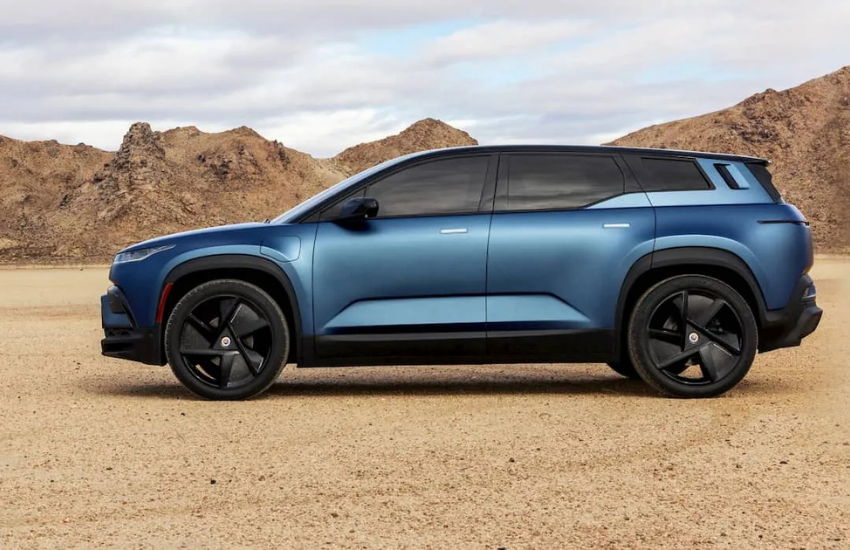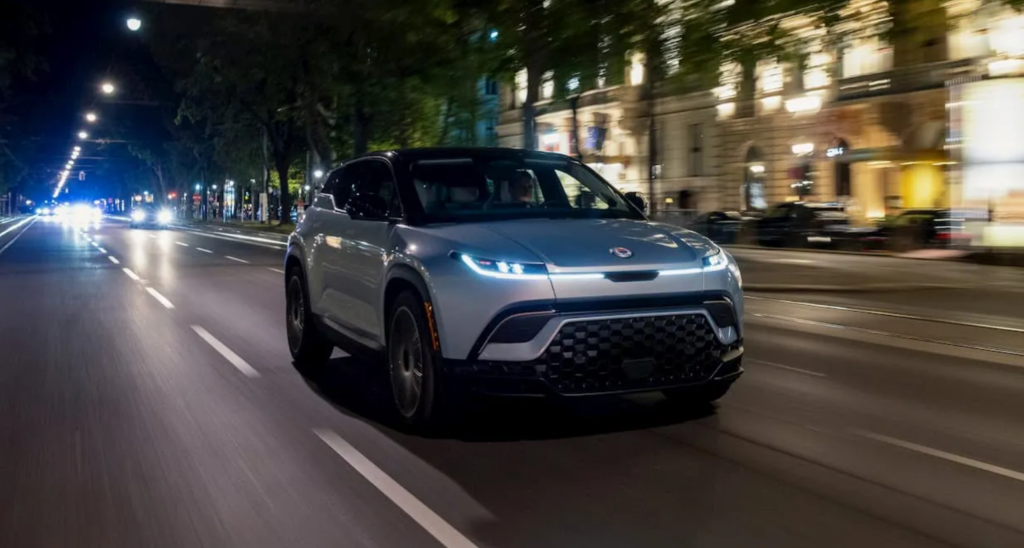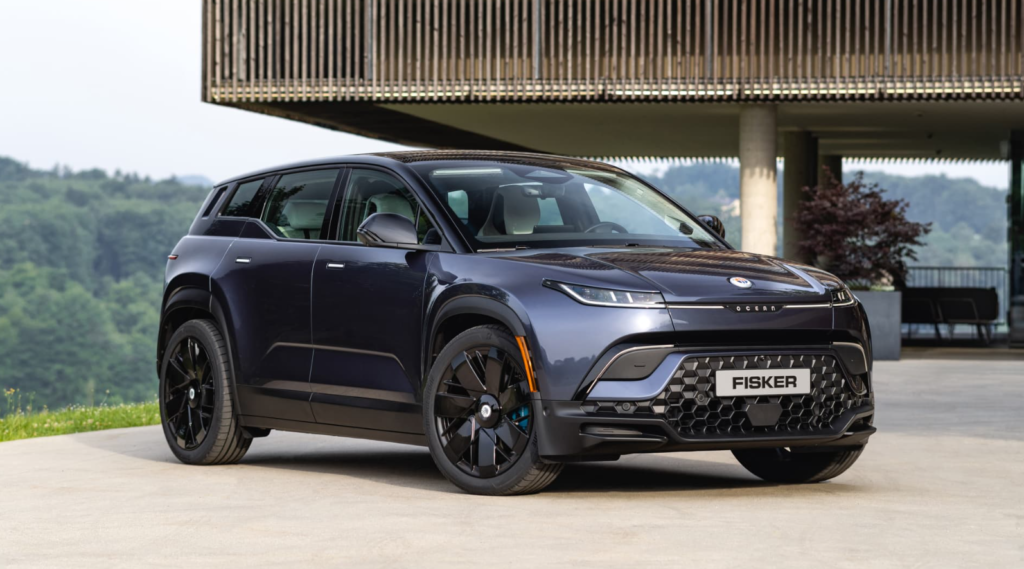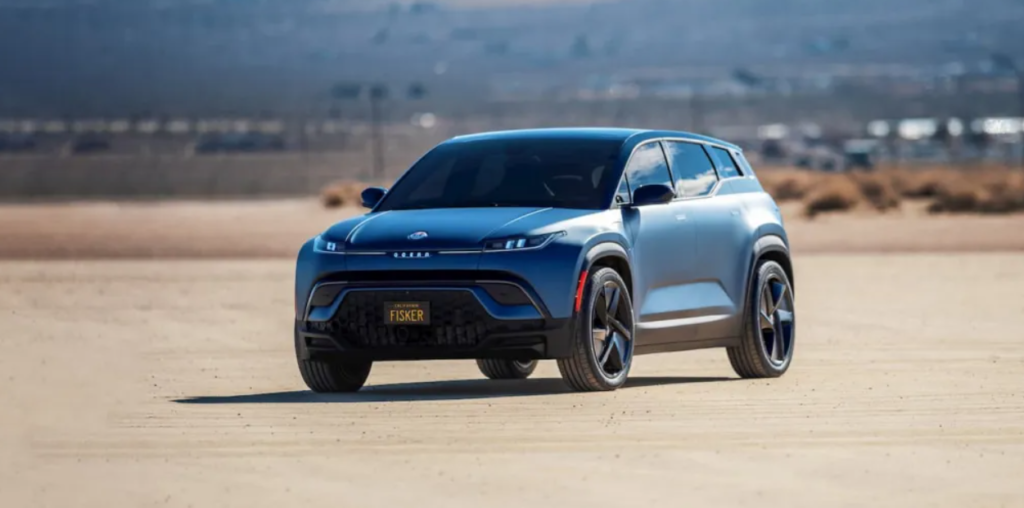Uncategorized
FSR Stock: Future Prospects and Investment Insights on Fisker Inc.
Published
8 months agoon
By
Bilal
The electric vehicle (EV) industry has witnessed an explosion of interest and investment over the past few years, driven by advancements in technology, government incentives, and the urgent need to reduce carbon emissions. Among the many EV companies vying for a piece of this fast-growing market is Fisker Inc., an innovative automaker with a focus on sustainability and luxury. Listed on the New York Stock Exchange under the ticker symbol FSR, Fisker has attracted attention from investors hoping to capitalize on the future of clean transportation.
But what makes FSR stock unique, and what are its prospects for the future? This article provides a comprehensive analysis of FSR stock, Fisker Inc.’s business model, market position, potential challenges, and long-term investment outlook.
Fisker Inc. Profile
| Attribute | Details |
|---|---|
| Company Name | Fisker Inc. |
| Ticker Symbol | FSR |
| Founded | 2016 |
| CEO | Henrik Fisker |
| Headquarters | Manhattan Beach, California, USA |
| Industry | Electric Vehicles (EV) |
| Notable Products | Fisker Ocean (SUV), Fisker PEAR (Personal EV) |
| Market Cap | Approximately $2 billion (subject to change) |
| Primary Competitors | Tesla, Rivian, Lucid Motors, NIO |
| Stock Exchange | New York Stock Exchange (NYSE) |
The Fisker Inc.: A Brief History and Mission
Fisker Inc. was founded in 2016 by Henrik Fisker, a renowned automotive designer known for his work with luxury brands like Aston Martin and BMW. Fisker had previously founded a company in 2007, also named Fisker Automotive, which created the Fisker Karma, one of the first plug-in hybrid luxury cars. However, that company eventually went bankrupt in 2013 due to production and financial challenges.

In 2016, Henrik Fisker launched a new company, Fisker Inc., with a renewed focus on fully electric vehicles. This time, Fisker’s vision was not only to produce high-performance electric cars but also to make them more sustainable. The company has committed to using recycled materials in its manufacturing processes, minimizing its environmental impact, and implementing new technology to achieve a competitive edge in the EV market.
Fisker Inc.’s mission is to bring luxury, sustainable electric vehicles to the market at competitive prices. With its flagship vehicle, the Fisker Ocean, expected to compete directly with established brands like Tesla and emerging players like Rivian, Fisker aims to carve out a niche in the electric SUV market, prioritizing design, sustainability, and affordability.
FSR Stock Performance and Recent Trends
As of recent months, FSR stock has been volatile, reflecting both the excitement around EV stocks and the inherent risks in the industry. Since its initial public offering (IPO) via a special purpose acquisition company (SPAC) in October 2020, FSR stock has seen sharp increases and declines. This volatility can be attributed to a combination of factors, including delays in production, competition from established EV manufacturers, and the general uncertainty surrounding the growth of the EV market.
One of the primary reasons for FSR stock’s fluctuations is investor sentiment on the EV industry as a whole. In 2020 and 2021, EV stocks surged as Tesla achieved record highs, spurring interest in companies like Fisker, NIO, and Lucid Motors. However, in 2022, rising interest rates, supply chain disruptions, and investor skepticism about unproven companies in the EV space led to a significant correction in many EV stocks, including FSR.

While Fisker remains a high-risk investment due to its relatively early stage in the production process, some investors are optimistic about its long-term potential, especially given the growing demand for sustainable vehicles. Fisker’s ability to navigate production challenges and scale its operations will be critical for the future performance of FSR stock.
Key Factors Influencing FSR Stock
For investors considering FSR stock, understanding the key factors that influence its performance is essential. These factors include Fisker’s production timeline, competition within the EV market, government regulations, and consumer demand for sustainable vehicles.
1. Production Timeline and Vehicle Launches
One of the biggest challenges facing Fisker Inc. is its production timeline. Fisker’s flagship vehicle, the Fisker Ocean, was initially expected to be in production by late 2022, with deliveries starting shortly after. However, delays in the manufacturing process and global supply chain issues have pushed the timeline back, causing some uncertainty among investors.
Fisker has chosen to work with Magna International, a well-established automotive supplier, to manufacture the Ocean. This strategic partnership is expected to help Fisker scale production efficiently. Additionally, Fisker is developing a second model, the Fisker PEAR, an affordable EV targeting the urban market, which is planned for production by 2024. If Fisker can meet its production targets and deliver vehicles on time, this could have a positive impact on FSR stock.

2. Competition in the EV Market
The EV market has become highly competitive, with established companies like Tesla and new players like Rivian, Lucid Motors, and NIO dominating the landscape. Fisker’s ability to differentiate itself will be crucial for its success. The company is focusing on sustainability, affordability, and unique design to carve out its niche in the market.
Fisker’s vehicles, particularly the Ocean, are positioned as eco-friendly and affordable luxury SUVs, targeting consumers who want a balance between price, style, and environmental consciousness. However, the competition remains fierce, with other manufacturers also pushing sustainability and cost-effective models. For FSR stock to perform well, Fisker will need to capture market share and build a loyal customer base despite these challenges.
3. Government Incentives and Regulations
Government policies and incentives are critical drivers in the EV industry, as they encourage consumers to transition from traditional combustion-engine vehicles to electric alternatives. In the U.S., the Biden administration has emphasized the importance of sustainable energy and has introduced incentives to support EV adoption, including tax credits and subsidies for EV buyers and manufacturers.
Fisker stands to benefit from these incentives, which could help boost consumer interest in the Ocean and other models. Additionally, stricter emission regulations and the gradual phasing out of gasoline vehicles in regions like Europe will likely accelerate the demand for EVs. Positive government policies will likely support Fisker’s growth, which could contribute to FSR stock’s performance over the long term.
4. Consumer Demand for Sustainable Vehicles
As consumers become more environmentally conscious, demand for sustainable and eco-friendly products has surged, particularly in the automotive sector. Fisker’s commitment to sustainability—by using recycled materials and aiming for carbon-neutral production by 2027—aligns well with current consumer trends. If Fisker can market its sustainability efforts effectively, it may attract a niche audience that prioritizes eco-friendly brands.
However, it’s worth noting that consumer demand can be influenced by factors such as economic conditions and fuel prices. High inflation or economic downturns could potentially reduce consumers’ willingness to spend on luxury EVs. For FSR stock to thrive, Fisker will need to maintain steady consumer interest and remain competitive on pricing.
Pros and Cons of Investing in FSR Stock
Investing in FSR stock, like any stock in the EV sector, comes with both potential rewards and risks. Understanding these pros and cons can help investors make informed decisions.
Pros
- Strong Leadership: Fisker Inc. is led by Henrik Fisker, an experienced designer with a proven track record. His expertise in automotive design gives the company a unique advantage in creating visually appealing EVs.
- Sustainability Focus: Fisker’s emphasis on sustainability could appeal to environmentally conscious consumers, creating a loyal customer base that values eco-friendly practices.
- Strategic Partnerships: Partnerships with established manufacturers like Magna International improve Fisker’s chances of scaling production efficiently, which is critical for growth.
- Growing EV Market: With global demand for EVs expected to rise in the coming years, Fisker is well-positioned to capitalize on this trend if it can execute its production plans effectively.
Cons
- High Competition: The EV market is highly competitive, with established brands like Tesla and promising new entrants like Rivian and Lucid, which may overshadow Fisker.
- Production Delays: Fisker has experienced delays in launching its vehicles, which creates uncertainty and risks for investors.
- Financial Volatility: As a growth-stage company, Fisker is not yet profitable and may experience significant stock price volatility, particularly in response to production setbacks or negative market conditions.
- Dependence on Incentives: Fisker’s success may rely heavily on government incentives for EV adoption. Any changes in policy could impact the company’s growth trajectory.
Long-Term Outlook for FSR Stock
The long-term outlook for FSR stock largely depends on Fisker’s ability to bring its vehicles to market on time, build a strong customer base, and maintain its commitment to sustainability. If Fisker can meet its production targets and continue to develop innovative, affordable EVs, it has the potential to become a successful player in the EV market. Its partnerships with industry leaders and focus on eco-friendly practices provide a unique angle that could attract loyal customers and investors alike.
However, the road ahead is challenging. Fisker faces stiff competition, high production costs, and the need for significant capital to scale. The company’s success—and by extension, the performance of FSR stock—hinges on its ability to navigate these obstacles effectively. Investors with a high tolerance for risk and a belief in the future of sustainable transportation may find FSR stock an intriguing addition to their portfolios.
Conclusion: Is FSR Stock Worth the Investment?
FSR stock presents both significant opportunities and risks. As an early-stage player in the rapidly evolving EV market, Fisker Inc. has the potential to grow alongside the increasing demand for electric vehicles. With a strong leadership team, a focus on sustainability, and strategic partnerships, Fisker has positioned itself as a unique brand in a crowded space.
However, the risks are substantial. Delays in production, intense competition, and reliance on government incentives make FSR stock a volatile choice. Investors should carefully consider these factors before investing and should only allocate funds they are willing to keep invested for the long term. For those with a high-risk tolerance and a belief in Fisker’s vision, FSR stock could be a promising, albeit speculative, investment in the future of electric vehicles.

Who Is Lynn Hamilton? Celebrating the Life and Legacy of the American Actress

Who is Mickey Gooch Jr? The Dynamic Journey of a Film Producer and Actor

Who Is Pierre Bouvier? All About the Canadian Singer and Musician Behind Simple Plan

Who Is Pearl Minnie Anderson? Rising Star in Maya Rudolph’s Legacy

Who is Minnie Pearl? The American Comedian Who Brought Country Humor to the Spotlight

Who Is Kavan Smith? The Canadian Actor Known for His Versatile Roles

Who is Olivia Rose Cameron: The Creative Artist & Daughter of Kirk Cameron

Who Is Markella Kavenagh? All About the Australian Actress and Rising Star

Who is Tracey Hinds? Exploring the Life of Macy Gray’s Ex-Husband and Mortgage Broker

Who is Eric Weinberger? A Visionary Television Producer Shaping Sports Media

Who Is Dan Jeannotte? All About the Canadian Actor’s Career and Roles

Who Is Paul Fenech? Inside the World of the Australian Filmmaker and Actor

Who Is Merri Kelly Hannity? All About Sean Hannity’s Daughter

Who Is Diana Espinoza Aguilar? The Story of Rafael Caro Quintero’s Wife

Who is Charlee Fraser? The Rise of the Australian Model and Actress Making Global Waves

Who Is James Lesure? All About the American Film and Television Actor

Who is Eric Weinberger? A Visionary Television Producer Shaping Sports Media

Who Is Toru Ohtani? All About Shohei Ohtani’s Father & Baseball Coach

Who is Torrei Hart? The Multitalented Actress and Comedian Making Waves

Who Is Avantika Vandanapu? Rising American Actress & Singer

Who Is Lynn Hamilton? Celebrating the Life and Legacy of the American Actress

Who is Mickey Gooch Jr? The Dynamic Journey of a Film Producer and Actor

Who Is Pierre Bouvier? All About the Canadian Singer and Musician Behind Simple Plan

Who Is Pearl Minnie Anderson? Rising Star in Maya Rudolph’s Legacy

Who is Minnie Pearl? The American Comedian Who Brought Country Humor to the Spotlight

Who Is Kavan Smith? The Canadian Actor Known for His Versatile Roles

Who is Olivia Rose Cameron: The Creative Artist & Daughter of Kirk Cameron

Who Is Markella Kavenagh? All About the Australian Actress and Rising Star

Who is Tracey Hinds? Exploring the Life of Macy Gray’s Ex-Husband and Mortgage Broker

Who is Eric Weinberger? A Visionary Television Producer Shaping Sports Media
Trending
-

 Celebrity11 months ago
Celebrity11 months agoNecati Arabacı: Net Worth, Biography, and More
-

 Celebrity12 months ago
Celebrity12 months agoDiscovering Lily Phillips: An Insight into Her Life and Career
-

 Celebrity12 months ago
Celebrity12 months agoParker Schnabel’s Girlfriend: A Comprehensive Look at His Relationships Over the Years
-

 Celebrity11 months ago
Celebrity11 months agoEnrica Cenzatti: Life of Andrea Bocelli’s Ex-Wife
